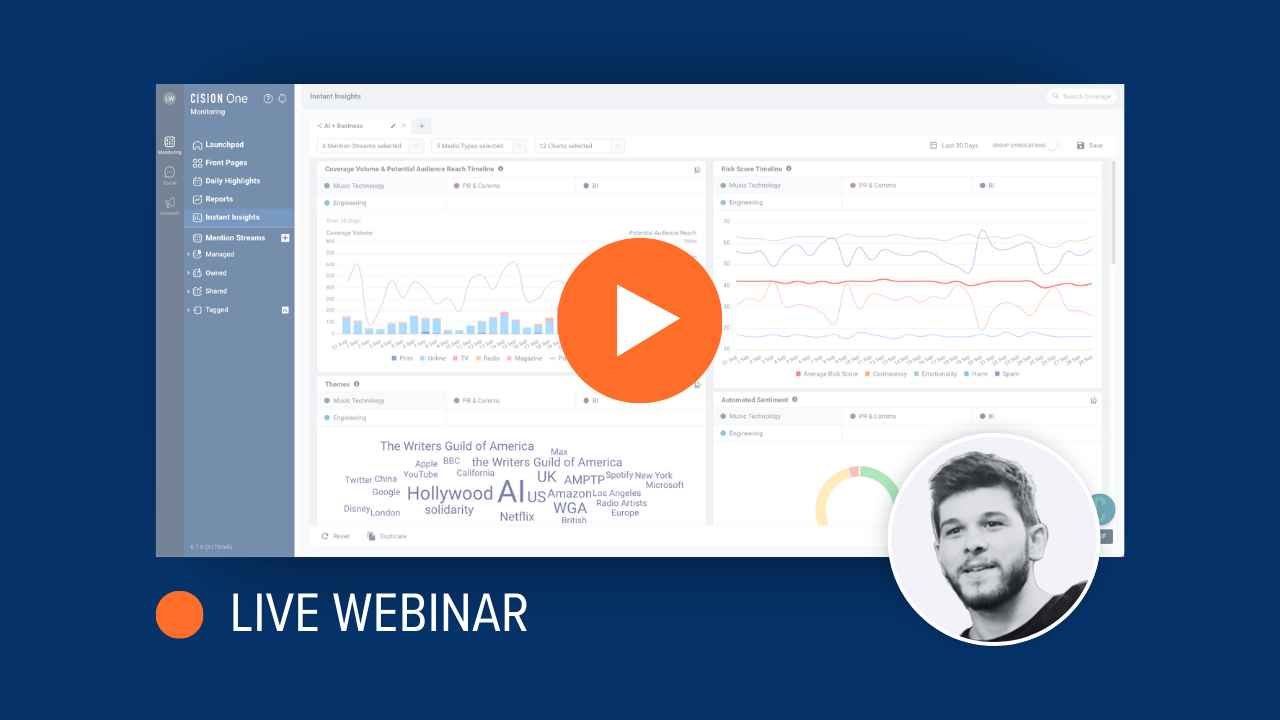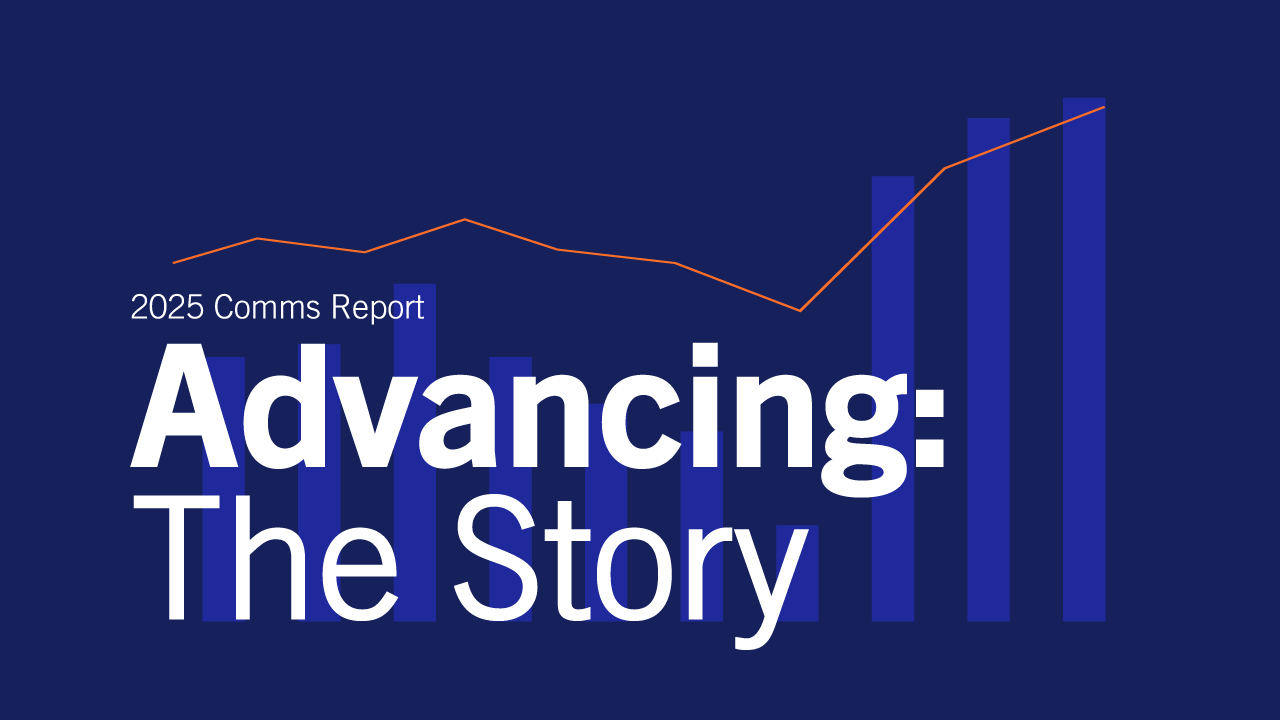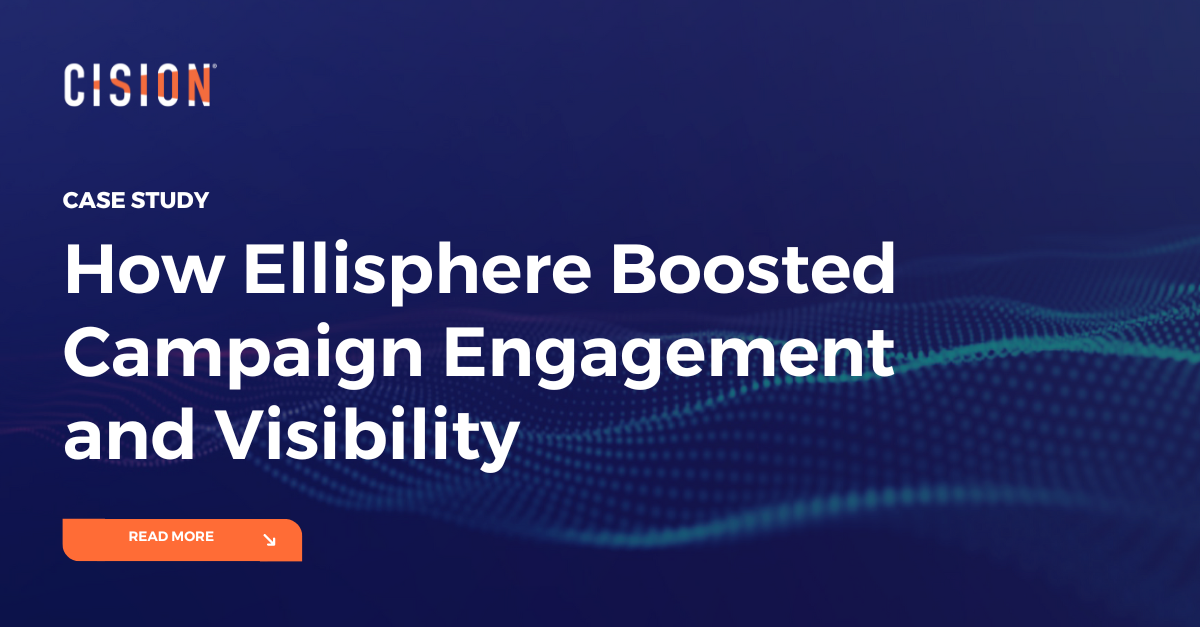We Are Black Journos was formed in 2018 to "provide a space where established and aspiring Black journalists can have healthy discussion, share insights and find belonging." Cision spoke with founder Hannah Àjàlá about the organisation's five years and the vital work that they do.
Can you talk about the origins of We Are Black Journos?
We Are Black Journos is a community network platform that was founded in 2018 and it was a way to create the things that I didn't see after working, at that time, for nearly five years at the BBC. I remember my excitement of wanting to work in a department that I thought would be diverse, because it was a department that produces podcasts that go out to international audiences. The majority of these audiences don't even have English as a second language, so automatically I thought, OK, great, I'm sure the people in the production unit are reflective of the audiences that they're speaking to. I’m a really big believer in the saying that the media can’t reflect society if society isn't reflected in the media. So, I joined this department to learn that out of nearly 100 people I'm the only non-white person in that space. I wouldn't say it was a big jolt, it was just something that was easily noticeable, but really played on my mind.
I did a bunch of research and found that at the time there wasn't a network specifically connecting Black journalists, so I decided to create one, because also at that time I was connecting with a bunch of other amazing Black journalists. And I thought, OK, so we do exist. We're not a monolith. I think it's time that we're celebrated.
Also shocking to me at that time in 2018 Black journalists accounted for 0.4% of journalists in the UK, so I thought this this is not important, it's crucial. It is needed, because it's not just for us that deserve to have a platform to connect, but it’s for those aspiring journalists-to-be that want to feel seen.
The pandemic must have made your organisation even more important?
So, so important, because that was a massive turning point for us. It was June 2020, I was working in West Africa and locked down in Lagos, Nigeria, when we saw yet again another Black man being killed by a white cop in America. What made it different was the global reactions. People within the Black community have seen this, we know about it, we know about the hashtags.
It's the same kind of narrative, sadly, but it was a turning point to see that big brands and organisations were speaking up and posting their black boxes and learning a lot about what racism meant. But at We Are Black Journos, the work we do continues. We’re currently in UK Black History Month but we're still going to continue the work we do all year round.
We noticed during the pandemic that people were tagging us and referring us to places, and it got to the point where our inboxes were filled with very senior executive people working within British journalism, asking questions about what they could do. I thought, let’s put an online event together. It was titled ‘Allyship, what it means and how you can practise it’. This is how we wanted to open up the conversation.
How can people work with We Are Black Journos?
There are several different ways people can collaborate with We Are Black Journos. But before we even get into the collaboration aspects, there needs to be that mutual agreement from the beginning that institutional racism does exist. There needs to be the understanding that diversity and inclusion aren't buzz words, but it's actually a lifestyle that we want to implement and normalise so that newsrooms look reflective of society.
That online event was an opening into collaborating with reputable media organisations. The first few years of We Are Black Journos are about building our community, building our visibility and ensuring as many Black journalists within the UK and beyond are aware of who we are.
We also stress the fact that we do not run We Are Black Journos solely for white allyship or white validation or anything of that sort. It's by Black journalists and of course, it's supporting black journalists. It was amazing to know that our first ever event, two weeks after launching in 2018, welcomed non-Black people – we are absolutely for that. But what we won’t do is work with people who are doing it for a buzz or for fun, or to show that they’ve ticked a box.
That fight goes back to the meaning of allyship, to be a long-term relationship. It's not something that's seasonal. It's the same way that racism is something that Black communities have been subjected to for centuries.
That event was a really great opening into collaboration – of course, it’s a shame that it took another Black man being killed by another white cop to start that, but since then we have worked with the Financial Times, Marie Claire, Bloomberg, ITN, many awesome organisations – opening up those conversations and showing that there's power in collaboration.
What kind of support do you offer your community and does the community offer each other?
We’d like to say that we’re the directory for Black journalists and media professionals in the UK, so we get emails and messages sent through from organisations that would like job opportunities specifically tailored to our community and members.
We recently launched a paid membership scheme, so we'll send out those opportunities via our private channels and our newsletter. In total we reach about 7000 people, and since launching our membership we’re able to create more intimacy amongst each other within that private network, giving those members special access to certain events and opportunities.
Gone are the days of going on a website and applying for a job and hoping for the best. We have relationships with those that are hiring and those that want to give these Black journalists tips and advice that stand out in the application.
In terms of the relationship we have amongst each other, it's just nice to build a family, a support system, a community where we can be vulnerable with each other. I'm working in this organisation and I'm in this team and I'm the only Black person. I absolutely love my job, but it's also isolating because people don’t understand me. We do coffees and teas and we’re always looking out for one another in the best way that we can.
And what are the biggest lessons that you've learned from running this organisation for five years?
Teamwork really makes the dream work! I’m incredibly thankful for my small team that are always there to listen and to advise. I'm incredibly thankful to people that offer up their time, and for the people I’ve built genuine relationships with.
It’s not easy, but it genuinely doesn’t feel like work because it pays off in so many ways. Recently we did an event for entry-level journalists where we collaborated with Money Saving Expert and Martin Lewis made an appearance and spoke to everyone for an hour. Off the back of that event, three members from We Are Black Journos got MSE internships. That truly meant the world. I’m really grateful for those genuine relationships that have been built and to see it come to fruition.
And what do you have planned next?
We’ve planned a gala to celebrate five years of our work, our accomplishments, our achievements. We've got incredible people that are going to be in attendance from Andrea Thompson, Editor-in-Chief of Marie Claire UK, to Marcus Ryder and Marverine Cole. Really big names and most importantly the incredible Black journalists within our network, new people that we’re meeting for the first time, and a celebration of normalising supporting and uplifting the validity of Black life.
Any final words?
We Are Black Journos is a completely self-funded organisation who only recently started receiving money last year and it was something that was suggested to us. Through the hundreds and hundreds of newsletters and ads that we sent to our community, we never knew these organisations sending them can actually pay for it. So that is something that can really keep our work going as we're fundraising, not just for the gala but to support the work that we do.
We are always open to that support. It all starts with an e-mail or a DM – emails sent to us rarely ever get ignored. Support the work that we do, especially if you want to see more of a change in your spaces that are lacking what is reflective of society.
Most Recent Posts
Cision Resources
-
E-books and Guides
Comprehensive how-to guides on strategy and tactics
-
Case Studies
What are other brands doing – and how can we learn from them?
About Natalie Beale
Natalie is Cision UK's Senior Content Editor, based in London. She manages the UK Media Moves newsletters, which showcase the latest journalist news and moves, as well as highlighting industry events and awards.
Learn More. Do More. demo new
PR Tips, Case Studies, and Product Updates

[On-Demand Webinar] The Next Generation of Media Intelligence: From Gorkana to CisionOne
Explore CisionOne, a revolutionary media intelligence platform, and the evolution of Gorkana. Learn key features and strategies from Luke Williams, CisionOne Product Marketing Manager. Elevate your media outreach to new heights!


